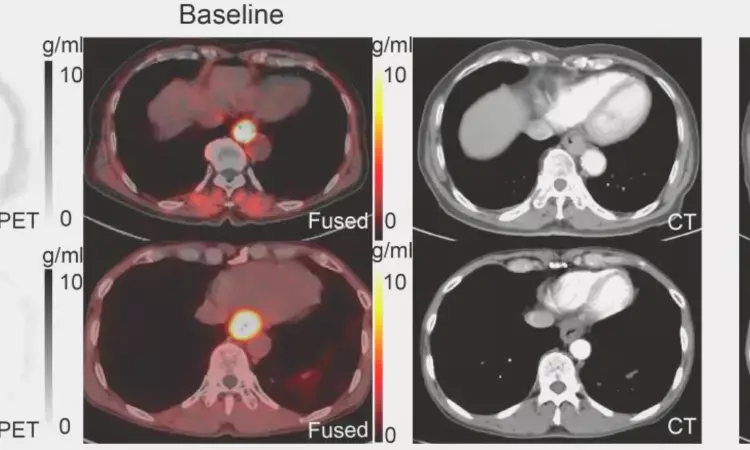- Home
- Medical news & Guidelines
- Anesthesiology
- Cardiology and CTVS
- Critical Care
- Dentistry
- Dermatology
- Diabetes and Endocrinology
- ENT
- Gastroenterology
- Medicine
- Nephrology
- Neurology
- Obstretics-Gynaecology
- Oncology
- Ophthalmology
- Orthopaedics
- Pediatrics-Neonatology
- Psychiatry
- Pulmonology
- Radiology
- Surgery
- Urology
- Laboratory Medicine
- Diet
- Nursing
- Paramedical
- Physiotherapy
- Health news
- Fact Check
- Bone Health Fact Check
- Brain Health Fact Check
- Cancer Related Fact Check
- Child Care Fact Check
- Dental and oral health fact check
- Diabetes and metabolic health fact check
- Diet and Nutrition Fact Check
- Eye and ENT Care Fact Check
- Fitness fact check
- Gut health fact check
- Heart health fact check
- Kidney health fact check
- Medical education fact check
- Men's health fact check
- Respiratory fact check
- Skin and hair care fact check
- Vaccine and Immunization fact check
- Women's health fact check
- AYUSH
- State News
- Andaman and Nicobar Islands
- Andhra Pradesh
- Arunachal Pradesh
- Assam
- Bihar
- Chandigarh
- Chattisgarh
- Dadra and Nagar Haveli
- Daman and Diu
- Delhi
- Goa
- Gujarat
- Haryana
- Himachal Pradesh
- Jammu & Kashmir
- Jharkhand
- Karnataka
- Kerala
- Ladakh
- Lakshadweep
- Madhya Pradesh
- Maharashtra
- Manipur
- Meghalaya
- Mizoram
- Nagaland
- Odisha
- Puducherry
- Punjab
- Rajasthan
- Sikkim
- Tamil Nadu
- Telangana
- Tripura
- Uttar Pradesh
- Uttrakhand
- West Bengal
- Medical Education
- Industry
FAPI-PET predicts concurrent chemoradiotherapy response in esophageal cancer patients: Study

China: Positron emission tomography (PET) imaging with a fibroblast activation protein inhibitor (FAPI) radiotracer may predict if esophageal cancer patients will respond to chemotherapy, a recent study in the Journal of Nuclear Medicine has stated.
The study found that a higher baseline TBRblood on 18F-FAPI-04 PET/CT scans was linked with poor response to concurrent chemoradiotherapy (CCRT) in patients with locally advanced esophageal squamous cell carcinoma (LA-ESCC) and thus, TBRblood could be helpful to improve treatment planning.
The prospective study by Xinying Hu, Shandong First Medical University, Shandong Academy of Medical Sciences, Jinan, Shandong, China, and colleagues was conducted to determine whether imaging results obtained through the tracer [18F] AlF-NOTA FAPI-04 (denoted as 18F-FAPI-04) in PET/CT can predict short-term outcomes in LA-ESCC patients treated with concurrent chemoradiotherapy.
The study enrolled 18 LA-ESCC patients who underwent 18F-FAPI-04 PET/CT scanning before CCRT. The following parameters were recorded: - metabolic tumor volume, the maximum, mean, and peak standard uptake values (SUVmax, SUVmean, and SUVpeak), and total lesion FAP expression. Additionally, measuring SUVmean of normal tissue (muscle and blood) and SUVmax of the primary tumor was done, and their ratios were represented as target-to-background ratios (TBRmuscle and TBRblood). Patients were categorized per the RECIST criteria as responders or non-responders, and SUVs were compared between the two groups.
The study led to the following findings:
- Non-responders had significantly higher TBRblood, TBRmuscle, and SUVmean than responders.
- TBRblood (area under the curve [AUC]=0.883), TBRmuscle (AUC=0.896), and SUVmean (AUC=0.870) were identified as significant predictors of the CCRT response, with respective cutoff values of 10.68, 10.95 and 6.88.
- For TBRblood, specificity, sensitivity, negative predictive value, positive predictive value, and accuracy respectively were 72.7%, 100.0%, 88.9%, 66.7%, and 77.8%; for TBRmuscle it was 72.7%, 100.0%, 88.9%, 66.7%, and 77.8%, and SUVmean 81.8%, 85.7%, 90.0%, 75.0%, and 83.3%, respectively.
- TBRblood, TBRmuscle, SUVmean, and tumor sites were significantly correlated with the short-term outcome, as shown by univariate logistic regression analysis.
- On multivariable logistic regression analysis, TBRblood was an independent prognostic factor for short-term outcomes.
"The findings suggest that pretreatment F-18 FAPI-04 PET/CT combined with clinical prognostic factors could be developed as an approach to help determine that chemotherapy would be beneficial in patients," the researchers wrote in their study.
"18F-FAPI-04 PET/CT may offer a standardized and reproducible technique for LA-ESCC patients identification who are most likely to respond to chemotherapy," they concluded.
Reference:
Hu X, Zhou T, Ren J, Duan J, Wu H, Liu X, Mu Z, Liu N, Wei Y, Yuan ST. Response prediction using 18F-FAPI-04 PET/CT in patients with esophageal squamous cell carcinoma treated with concurrent chemoradiotherapy. J Nucl Med. 2022 Oct 13:jnumed.122.264638. doi: 10.2967/jnumed.122.264638. Epub ahead of print. PMID: 36229183.
Dr Kamal Kant Kohli-MBBS, DTCD- a chest specialist with more than 30 years of practice and a flair for writing clinical articles, Dr Kamal Kant Kohli joined Medical Dialogues as a Chief Editor of Medical News. Besides writing articles, as an editor, he proofreads and verifies all the medical content published on Medical Dialogues including those coming from journals, studies,medical conferences,guidelines etc. Email: drkohli@medicaldialogues.in. Contact no. 011-43720751


